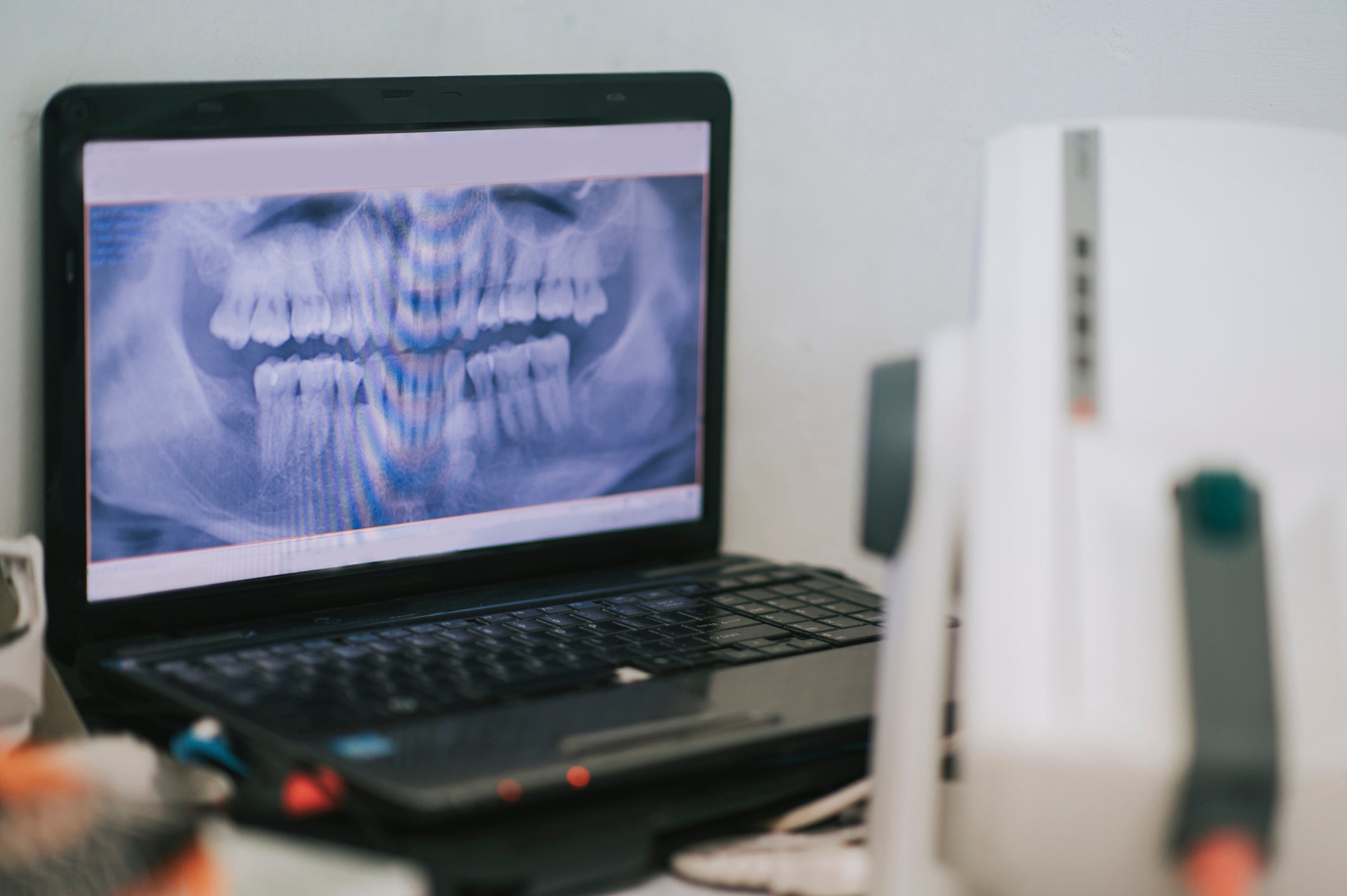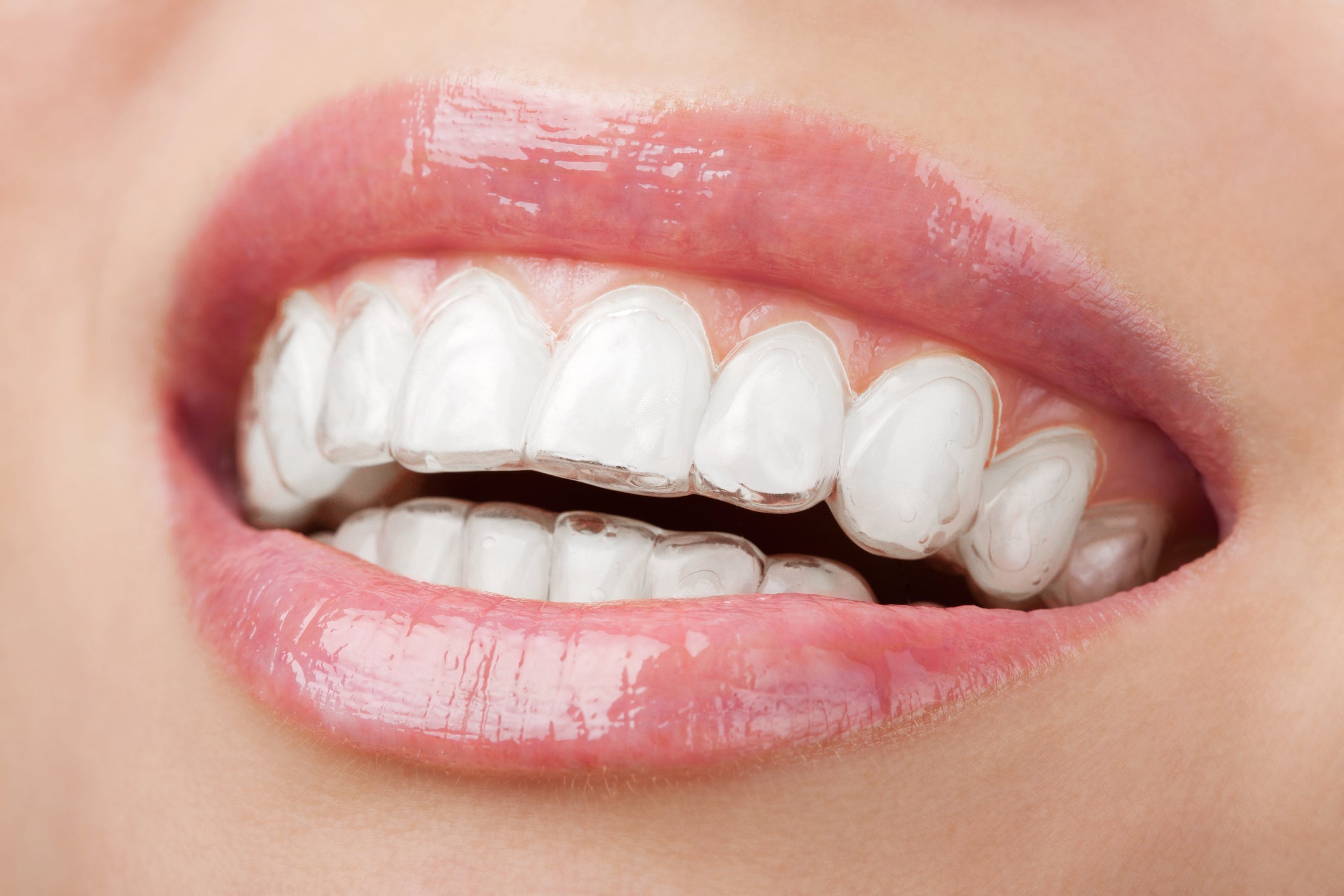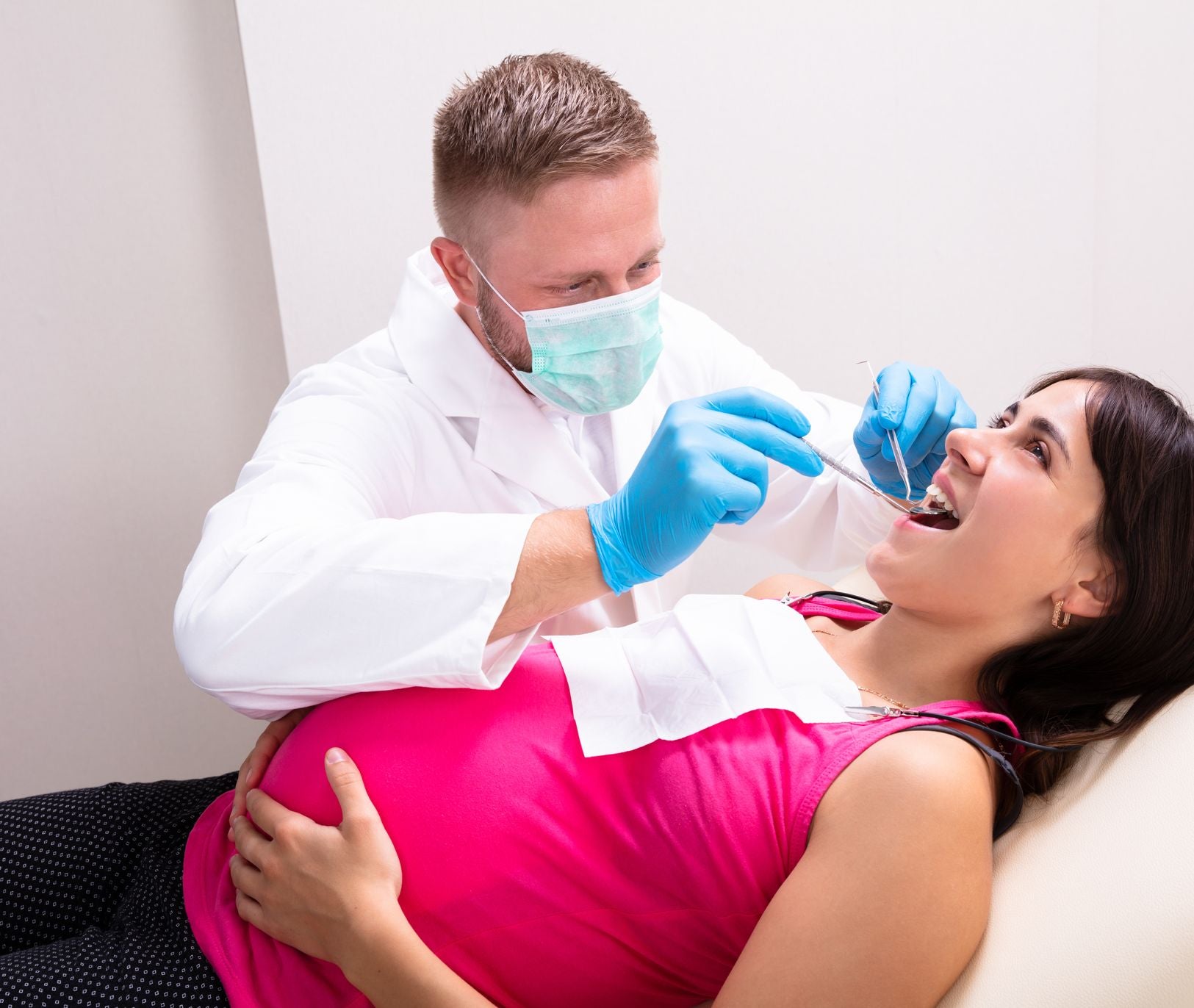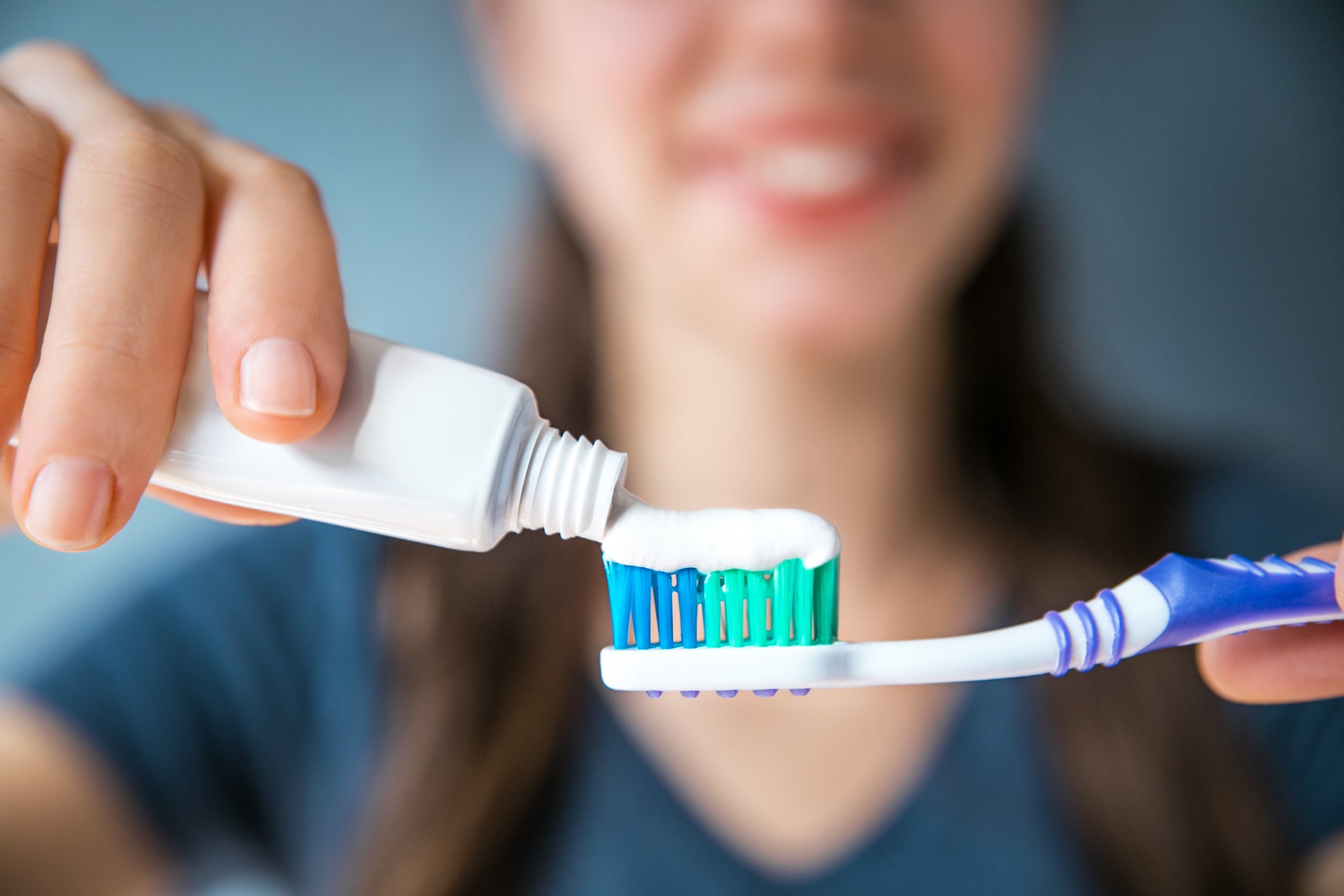-
Are Dental X-Rays Safe?

When you visit the dentist for a routine appointment, you may have dental X-rays taken. This is typically done once a year to track your oral health. As a concerned patient, you may be wondering—are dental X-rays safe for you and your family? Why are they even necessary? Find the answers to your questions here.
The Importance of Dental X-Rays
While a visual inspection of your mouth is an important part of any oral exam, your dentist can’t see what’s going on beneath the surface. The purpose of an X-ray is to inspect the jaw bone, tooth roots, and internal layers of your teeth. Your dentist may recommend X-rays for several reasons:
- Diagnose oral health problems, from cavities and gum disease to abscesses and bone infections, before the condition gets any worse.
- Monitor recovery following a maxillofacial
- Determine if certain treatments are necessary, including wisdom tooth extraction and orthodontics.
Types of Dental X-Rays
Dental X-rays come in many forms. The type you receive depends on the reason your dentist wants to X-ray your mouth. Here are the most common dental X-rays in use today:
- Bitewing X-rays allow the dentist to check for cavities and assess the filling in the crowns of your teeth.
- Periapical X-rays display teeth from the crown to the root so the dentist can check for cavities, root problems, and issues in the surrounding jaw bone.
- Panoramic X-rays track a child’s tooth development to determine if braces are necessary.
- Occlusal X-rays show the roof or floor of the mouth and are used to find yet-to-erupt teeth.
- Extraoral X-rays capture images of a child’s skull to monitor overall jaw development.
- Cone beam computed tomography (CBCT) offers a 3D view of the mouth to help the dentist assess tooth spacing and development.
What about Radiation Exposure?
X-rays emit a small amount of radiation, which is why some patients worry about their safety. However, consider that the average American receives a radiation dose of about 620 millirem every year. The American Dental Association reports that intraoral X-rays expose patients to 0.5 millirem of radiation, while panoramic dental X-rays produce a 1.0 millirem dose of radiation.
Digital dental X-rays generate even less radiation. Many dentists use digital technology to take X-rays these days—not only for their increased safety but because they provide clearer images in a shorter amount of time. Even with negligible radiation levels from digital X-rays, the ADA still recommends that patients wear a lead apron over their abdomen and neck for added protection.
All things considered, the benefits of dental X-rays far outweigh the risks. Park 56 Dental is pleased to offer advanced digital X-rays to our patients. As part of our focus to make the dental experience as safe and comfortable as possible, we are happy to answer any questions you have. Give us a call at (212) 826-2322 or contact us online to learn more or schedule an appointment at our NYC dentist office.
-
The Dos and Don’ts of Wearing Invisalign

Have you chosen Invisalign over traditional braces to straighten your teeth? As a fast, effective, virtually invisible way to get the smile of your dreams, Invisalign is popular among teens and adults alike. Just be aware that this tooth-straightening method has specific care requirements. Here are the basic dos and don’ts of wearing Invisalign to ensure the best results from your investment.
- Do soak and brush your trays daily: Start off each morning by soaking your aligners in denture cleaner or Invisalign cleaning crystals. Then, remove residue by brushing the aligners using a separate toothbrush from the one you use to brush your teeth. Rinse the trays and slip them back into your mouth. Do this again every night before bed.
- Do remove the trays to eat and drink: Apart from water, you should not eat or drink anything while wearing your Invisalign. Food and beverages can stain the clear plastic aligners and encourage particles to become stuck between your teeth.
- Do brush and floss after eating: When you finish a meal or snack, brush and floss to remove particles before putting your Invisalign back in. If you can’t do this while away from home, at least rinse your mouth out or chew sugarless gum for a few minutes.
- Do wear your Invisalign 20 to 22 hours a day: If you’re not eating or drinking, you should be wearing your aligners, including while you sleep. Failing to follow this schedule could delay your treatment.
- Don’t snack excessively: Are you accustomed to snacking or drinking soda and coffee throughout the day? You may need to reassess these habits. Every time you remove the trays to eat and drink, you must clean your mouth to prevent cavities and staining. Your oral health—not to mention your waistline—will thank you for cutting down on snacks and drinks between meals during Invisalign treatment.
- Don’t leave your trays lying around: To prevent losing or damaging your aligners, store them in their carrying case whenever you remove them from your mouth. This also protects against bacteria buildup. Help the case stay clean by rinsing your trays before putting them inside.
- Don’t leave town without your next set of aligners: Invisalign treatment involves swapping out the trays every few weeks. If you’re going on vacation, make sure you bring the next set with you to avoid delaying the results.
- Don’t smoke: Tobacco will quickly discolor your clear aligners, not to mention stain your teeth and cause numerous other oral health problems. If you are currently a smoker, consider quitting before you begin Invisalign treatment. Your overall health will improve if you do.
Park 56 Dental is a certified Invisalign provider in NYC. We can help you plan your smile transformation from the comfort of our spa-like office. Here, you’ll receive exceptional care during convenient hours that fit your schedule. To learn more about Invisalign, please contact us online or call (212) 826-2322 and schedule a complimentary consultation today.
-
Dental Care During Pregnancy

Routine dental care is important for everyone at any age, but it’s particularly crucial for expecting mothers. After all, pregnancy increases the risk of several oral health problems, and developing these problems could adversely affect your baby’s health. If you have a child on the way, follow these dental care tips to promote a healthy pregnancy.
How Pregnancy Affects Dental Health
The changes your body undergoes while pregnant may increase your risk for the following conditions:
- Cavities: Sugar cravings and the temptation to skip brushing because you’re tired or nauseous can make you more cavity-prone. The bacteria that cause cavities can then pass to your unborn baby, causing problems for the child’s teeth later in life.
- Gingivitis and gum disease: Hormonal changes increase the risk of “pregnancy gingivitis,” which affects 60 to 75 percent of pregnant women. Red, swollen, tender gums can develop into more serious gum disease, infections, and tooth loss if left untreated.
- Eroded tooth enamel: Increased vomiting from morning sickness may expose your teeth to excessive stomach acid. This can eat away at the outer layer of your teeth known as enamel, leading to tooth sensitivity, discoloration, and chipping.
- Loose teeth: Rising hormone levels can cause your teeth to loosen temporarily.
- Pyogenic granuloma (pregnancy tumors): Too much plaque can cause tender lumps to form on your gums. These aren’t cancerous, but they cause discomfort and bleed easily. Proper dental care during pregnancy can prevent pyogenic granuloma.
How to Prevent Dental Problems During Pregnancy
Keep your teeth and gums healthy throughout your pregnancy with these tips:
- Brush and floss: Brush for two minutes at least twice a day with a soft-bristled toothbrush and fluoride toothpaste. Then, floss once a day to remove plaque from between the teeth.
- Use mouth rinse and antacids: If brushing makes you feel nauseous, a temporary alternative is to rinse your mouth with a solution of one teaspoon baking soda and one cup water. You can further reduce acidity in your mouth by taking antacids. Just be sure to speak with your doctor first.
- Eat a healthy diet: Limiting sweets reduces your cavity risk. Then, eating more fruits and vegetables, lean meats, whole grains, and low-fat dairy products provides you and your baby with nutrients that promote strong teeth and healthy gums.
- Visit the dentist: Don’t skip your routine appointment because you’re pregnant. Exams are more important than ever right now! During the visit, tell your dentist about your pregnancy, any medications you’re taking, and whether your pregnancy is high-risk. Also, disclose any changes you notice with your teeth and gums.
- Get dental X-rays if needed: Rest assured that dental X-rays can be performed safely during pregnancy. The technician takes special care to safeguard you and your baby by shielding your abdomen and thyroid.
Dental checkups before and during pregnancy are essential to find and treat problems early. To schedule your next appointment, please contact Park 56 Dental in NYC by calling (212) 826-2322.
-
How to Buy the Right Toothbrush

Do you feel overwhelmed every time you walk down the toothbrush aisle? Perhaps you have resorted to reaching for whatever’s on sale, buying a toothbrush because it’s your favorite color, or closing your eyes and choosing one at random. For the best results, you should make your selection more strategically. Brush up on how to buy the right toothbrush for your needs.
- Look for soft bristles: Check the packaging on different toothbrushes, and you’ll notice “soft,” “medium,” or “hard” on the label. Most people benefit from soft bristles, which clean your teeth effectively without damaging the enamel or irritating your gums. Just be careful to brush gently, even when using a soft-bristled brush, to avoid tooth sensitivity and receding gums.
- Find a small-headed toothbrush: The benefit of a small head is that the bristles can more easily reach behind your back molars. To make sure you scrub every hard-to-reach surface, avoid opening your mouth too far while brushing, which tends to push your toothbrush forward.
- Avoid cheap, no-name toothbrushes: Chances are those dollar-store toothbrushes are not approved by the American Dental Association. They may be made of inferior or even unsafe products, so leave them on the shelf.
- Choose a comfortable handle style: The toothbrush should fit comfortably in your hand. To achieve this, you may want one with a contoured handle or a flexible head that bends to reach every tooth with less effort on your part. These qualities come down to personal preference, so you may need to try a few styles to find what you like best.
- Consider an electric toothbrush: If you have trouble brushing for as long or as thoroughly as you should, an electric toothbrush could be a good investment. Studies show that electric toothbrushes remove more plaque than manual ones. The automatic bristle movement is especially beneficial for people with braces or limited wrist mobility.
- Shop wisely for your children: Babies and toddlers need the right toothbrush, too. Find one with a miniature head designed to fit their tiny mouths. While you’re at it, let your child select a toothbrush in a fun color or with a popular cartoon character that will encourage them to brush twice a day. Also, remember to use just a smear of kids’ toothpaste for safety in case they swallow rather than spit.
- Know when to replace your toothbrush: Eventually, your toothbrush will wear out, and you’ll need to shop for a new one again. Replace it every three months or when the bristles begin to look worn and frayed, whichever comes first. You should also replace your toothbrush after recovering from an illness to help prevent re-infection.
Brushing (and flossing!) every day is an effective way to maintain good oral health. However, it’s also important to visit the dentist every six months. Routine cleanings remove plaque and tartar to keep cavities and gum disease at bay. Schedule your next appointment at Park 56 Dental by calling (212) 826-2322 today.
RECENT POSTS
categories
- Uncategorized
- Cosmetic Dentistry
- Veneers
- Healthier Teeth
- Teeth Whitening
- Dental Health
- Video
- Dental Emergencies
- Invisalign
- Dental Implants
- Root Canal
- Sedation Dentistry
- Infographic
- Dental Crowns and Bridges
- Dental Anxiety
- Gum Disease
- COVID-19
- Bad Breath
- New York Dentist
- Cut out sugar
- General Dentistry
- Oral Health
- Oral Cancer
- Dry Mouth
- Gum Health
- Toothache
- Dental Sealants
- Cavities
